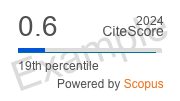Associations of rs4244285 in the CYP2C19 gene with multifactorial diseases
https://doi.org/10.29001/2073-8552-2021-36-4-125-131
Abstract
Xenobiotic metabolism system in the current populations is involved in the biotransformation of a wide range of endogenous substrates and various xenobiotics, which can contribute to developing the diseases of various organ systems, and, in some cases, comorbid conditions where increased biotransformation system activity is observed. In this regard, it is of great interest to study the involvement of polymorphism in xenobiotic metabolism genes in the development of both isolated pathology and various comorbid conditions.
Aim. The goal of study was to investigate the involvement of rs4244285 in the CYP2C19 gene in the development of isolated pathology and comorbidities.
Material and Methods. The frequencies of alleles and genotypes were studied in groups of patients with comorbid conditions including groups of coronary artery disease (CAD) with hypertension (HTN) (CAD_HTN, n = 133) and bronchial asthma (BA) with HTN (BA_HTN, n = 178), in group of isolated BA (n = 135), and in the population sample of the city of Tomsk (n = 377). Association analysis covered three initial groups of patients (CAD, BA, and BA_HTN) and subgroups assigned based on the presence of absence of HTN diagnosis taking into account comorbid conditions both in patient samples and in population control.
Results and Discussion. The study demonstrated the predisposing eff ect of GA genotype on the development of comorbid BA and HTN (OR = 1.94, p = 0.038) and comorbid CAD and HTN (OR = 2.26, p = 0.009) compared to isolated BA. The AA genotype was observed 3.98 times less often in HTN patients than in normotensive individuals. However, the diff erences did not reach the level of statistical signifi cance due to the low occurrence of this genotype.
Conclusion. The obtained results may be explained by the involvement of CYP2C19-metabolites of arachidonic acid in the regulation of vascular tone, which requires further study.
Keywords
About the Authors
N. P. BabushkinaRussian Federation
Cand. Sci. (Biol.), Research Scientist, Laboratory of Population Genetics
10, Nab. Ushaiki, Tomsk, 634050, Russian Federation
A. E. Postrigan
Russian Federation
Junior Research Scientist, Laboratory of Genomics of Orphan Diseases
10, Nab. Ushaiki, Tomsk, 634050, Russian Federation
A. N. Kucher
Russian Federation
Dr. Sci. (Biol.), Professor, Leading Research Scientist, Laboratory of Population Genetics
10, Nab. Ushaiki, Tomsk, 634050, Russian Federation
V. M. Shipulin
Russian Federation
Dr. Sci. (Med.), Professor, Chief Research Scientist
111a, Kievskaya str., Tomsk, 634012, Russian Federation
References
1. Rekka E.A., Kourounakis P.N., Pantelidou M. Xenobiotic metabolising enzymes: Impact on pathologic conditions, drug Interactions and drug design. Curr. Top Med. Chem. 2019;19(4):276–291. DOI: 10.2174/1568026619666190129122727.
2. Botton M.R., Whirl-Carrillo M., Del Tredici A.L., Sangkuhl K., Cavallari L.H., Agúndez J.A.G. et al. PharmVar GeneFocus: CYP2C19. Clin. Pharmacol. Ther. 2021;109(2):352–366. DOI: 10.1002/cpt.1973.
3. De Morais S.M.F., Wilkinson G.R., Blaisdell J., Nakamura K., Meyer U.A., Goldstein J.A. The major genetic defect responsible for the polymorphism of S-mephenytoin metabolism in humans. J. Biol. Chem. 1994;269(22):15419–15422.
4. Song B.L., Wan M., Tang D., Sun C., Zhu Y.B., Linda N. et al. Eff ects of CYP2C19 genetic polymorphisms on the pharmacokinetic and pharmacodynamic properties of Clopidogrel and its active metabolite in healthy Chinese subjects. Clin. Ther. 2018;40(7):1170–1178. DOI: 10.1016/j.clinthera.2018.06.001.
5. King L.M., Gainer J.V., David G.L., Dai D., Goldstein J.A., Brown N.J. et al. Single nucleotide polymorphisms in the CYP2J2 and CYP2C8 genes and the risk of hypertension. Pharmacogenet. Genomics. 2005;15(1):7–13. DOI: 10.1097/01213011-200501000-00002.
6. Polonikov A.V., Ponomarenko I.V., Bykanova M.A., Sirotina S.S., Bocharova A.V., Vagaytseva K.V. et al. A comprehensive study revealed SNP-SNP interactions and a sex-dependent relationship between polymorphisms of the CYP2J2 gene and hypertension risk. Hypertens. Res. 2019;42(2):257–272. DOI: 10.1038/s41440-018-0142-1.
7. Dreisbach A.W., Japa S., Sigel A., Parenti M.B., Hess A.E., Srinouanprachanh S.L. et al. The prevalence of CYP2C8, 2C9, 2J2, and soluble epoxide hydrolase polymorphisms in African Americans with hypertension. Am. J. Hypertens. 2005;18(10):1276–1281. DOI: 10.1016/j.amjhyper.2005.04.019.
8. Ma Y., Ni W., Zhu W., Xiong Y., Deng X. Association of genetic polymorphisms of CYP 2C19 with hypertension in a Chinese Han population. Blood Press. 2011;20(3):166–170. DOI: 10.3109/08037051.2010.542640.
9. Shin D.J., Kwon J., Park A.R., Bae Y., Shin E.S., Park S. et al. Association of CYP2C19*2 and *3 genetic variants with essential hypertension in Koreans. Yonsei Med. J. 2012;53(6):1113–1119. DOI: 10.3349/ymj.2012.53.6.1113.
10. Liu C., Kraja A.T., Smith J.A., Brody J.A., Franceschini N., Bis J.C. et al. Meta-analysis identifi es common and rare variants infl uencing blood pressure and overlapping with metabolic trait loci. Nat. Genet. 2016;48(10):1162–1170. DOI: 10.1038/ng.3660.
11. Polonikov A., Bykanova M., Ponomarenko I., Sirotina S., Bocharova A., Vagaytseva K. et al. The contribution of CYP2C gene subfamily involved in epoxygenase pathway of arachidonic acids metabolism to hypertension susceptibility in Russian population. Clin. Exp. Hypertens. 2017;39(4):306–311. DOI: 10.1080/10641963.2016.1246562.
12. Fleming I. The factor in EDHF: Cytochrome P450 derived lipid mediators and vascular signaling. Vascul. Pharmacol. 2016;86:31–40. DOI: 10.1016/j.vph.2016.03.001.
13. Zordoky B.N.M., El-Kadi A.O.S. Eff ect of cytochrome P450 polymorphism on arachidonic acid metabolism and their impact on cardiovascular diseases. Pharmacol. Ther. 2010;125(3):446–463. DOI: 10.1016/j.pharmthera.2009.12.002.
14. Capdevila J.H., Wang W., Falck J.R. Arachidonic acid monooxygenase: Genetic and biochemical approaches to physiological/pathophysiological relevance. Prostaglandins Other Lipid Mediat. 2015;120:40–49. DOI: 10.1016/j.prostaglandins.2015.05.004.
15. Fava C., Bonafi ni S. Eicosanoids via CYP450 and cardiovascular disease: Hints from genetic and nutrition studies. Prostaglandins Other Lipid Mediat. 2018;139:41–47. DOI: 10.1016/j.prostaglandins.2018.10.001.
16. Bylund J., Kunz T., Valmsen K., Oliw E.H. Cytochromes P450 with bisallylic hydroxylation activity on arachidonic and linoleic acids studied with human recombinant enzymes and with human and rat liver microsomes. J. Pharmacol. Exp. Ther. 1998;284(1):51–60.
17. Tantray J.A., Reddy K.P., Jamil K., Yerra S.K. Role of cytochrome epoxygenase (CYP2J2) in the pathophysiology of coronary artery disease in South Indian population. Indian Heart J. 2019;71(1):60–64. DOI: 10.1016/j.ihj.2018.11.011.
18. Swadi A.A., Mohammad B.I., Hadi N.R., Al-Aubaidy H.A. Correlation of CYP2D6 allelic polymorphism to outcome of acute coronary syndrome in mid-Euphrates Iraqi patients on metoprolol therapy. Gene.2019;703:112–119. DOI: 10.1016/j.gene.2019.04.012.
19. Li S., Choi J.L., Guo L.Z., Goh R.Y., Kim B.R., Woo K.S. et al. Correlation between the CYP2C19 phenotype status and the results of three different platelet function tests in cardiovascular disease patients receiving antiplatelet therapy: An emphasis on newly introduced platelet function analyzer-200 P2Y test. Ann. Lab. Med. 2016;36(1):42–48. DOI: 10.3343/alm.2016.36.1.42.
20. Yang D., Peng C., Liao Z., Wang X., Guo W., Li J. The effect of the CYP2C19*2 allele on cardiovascular outcomes in patients with coronary artery stenting: A prospective study. Arch. Med. Sci. 2019;15(4):837–844. DOI: 10.5114/aoms.2018.75349.
21. Lima J.J., Thomas C.D., Barbarino J., Desta Z., Van Driest S.L., El Rouby N. et al. Clinical Pharmacogenetics Implementation Consortium (CPIC) guideline for CYP2C19 and proton pump inhibitor dosing. Clin. Pharmacol. Ther. 2021;109(6):1417–1423. DOI: 10.1002/cpt.2015.
22. Chen M., Liu X.J., Yan S.D., Peng Y., Chai H., Li Q. et al. Association between cytochrome P450 2C19 polymorphism and clinical outcomes in Chinese patients with coronary artery disease. Atherosclerosis. 2012;220(1):168–171. DOI: 10.1016/j.atherosclerosis.2011.04.008.
23. Bertrand-Thiébault C., Berrahmoune H., Thompson A., Marie B., Droesch S., Siest G. et al. Genetic Polymorphism of CYP2C19 gene in the Stanislas cohort. A link with inflammation. Ann. Hum. Genet. 2008;72(2):178–183. DOI: 10.1111/j.1469-1809.2007.00417.x.
Review
For citations:
Babushkina N.P., Postrigan A.E., Kucher A.N., Shipulin V.M. Associations of rs4244285 in the CYP2C19 gene with multifactorial diseases. Siberian Journal of Clinical and Experimental Medicine. 2021;36(4):125-131. (In Russ.) https://doi.org/10.29001/2073-8552-2021-36-4-125-131





.png)





























